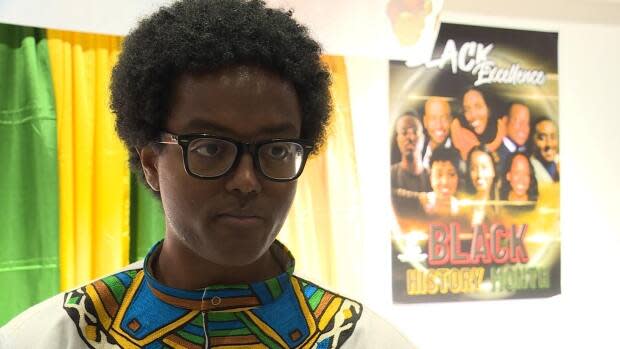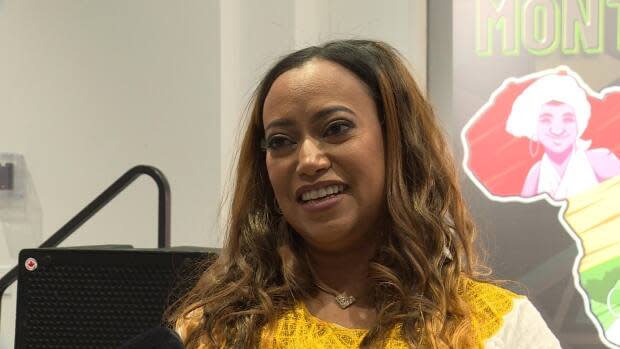This group is taking steps towards destigmatizing mental health for young Black immigrants

Dawit Mussie sees the challenges that young Black immigrants go through first-hand on a regular basis.
Those struggles, he says, come from lack of safe spaces and young people not feeling like they have someone to talk to about their problems.
Mussie is an educator and the youth program coordinator with the Immigrant Outreach Society. As an immigrant himself, he's faced the same issues that young newcomers are going through today.
"Everyone needs somewhere to go, everyone needs someone to talk to, and I didn't feel like that when I was going through the school system," Mussie said.
"I know a lot of my students are feeling the same way."

Breaking down barriers
The Immigrant Outreach Society held their annual conference on Saturday — an event they put on annually to highlight language-specific and culturally appropriate mental health programs geared toward helping Black East African youth.
It includes things like wellness groups, support groups, and a program geared toward helping those from the community integrate smoothly into Canadian society.
Those specialized programs are vital for the community and its members, said Solomon Agage, a mental health consultant.

"When you provide mental health services, or psychological health services, in the language that they understand, when you provide services that are quite culturally appropriate," he said.
"What we have found out was that people were quite free to talk about their challenges, talk about their traumas, talk about their mental health challenges and issues that they are navigating."
Agage said there are specific complexities when dealing with mental health for individuals of East African descent — issues that pertain to refugees and individuals who have lived through conflict are a couple of examples.
For a community that is often uncomfortable talking about mental health, Agage said culturally sensitive programs can break that stigma.
Systemic change
Community services can help youth tackle the challenges that they face. That's according to Adanech Sahilie, the founder of the Immigrant Outreach Society.
But the problem, she says, is a lack of knowledge and access to those services.
"I call that systemic racism, because most [of these] youth are born in a refugee camp and it's not really good to expect them to, all of a sudden, go and explore everything and access the services," she said.
"That's why we created the Immigrant Outreach Society, to minimize the gaps."

Her organization is doing something she calls proactive outreach where their workers go to the youth, wherever they are.
But she said it will take more than just her group to help those who are struggling. She said the conversation needs to happen at all levels of government in order to create change on a systemic level.
"As someone who is Black, our struggle is every day, especially when it comes to discrimination," she said.
"I wish, on a federal, provincial and municipal level the policy makers change the policies [so] that we all feel like we are included."
Mussie said the conversation needs to continue beyond just this month.
"There's some significant issues that don't get talked about, and February is Black History Month, so it gives us an opportunity to speak about these," said Mussie.
"Now the next thing is…what do we do after February ends? That's really the work that we have to start doing."
Young Calgary
CBC Calgary is looking for more young voices to help shape the news.
If you're age 16 to 25, join our text messaging community to share your ideas.
Highlight the heroes in your life. Tell us about the challenges you're facing down, and make suggestions on what you'd like to see CBC Calgary cover next.
It could be fun, and we promise to keep you in the loop the whole way. It's free and confidential. Unsubscribe any time.

 Yahoo Movies
Yahoo Movies 
